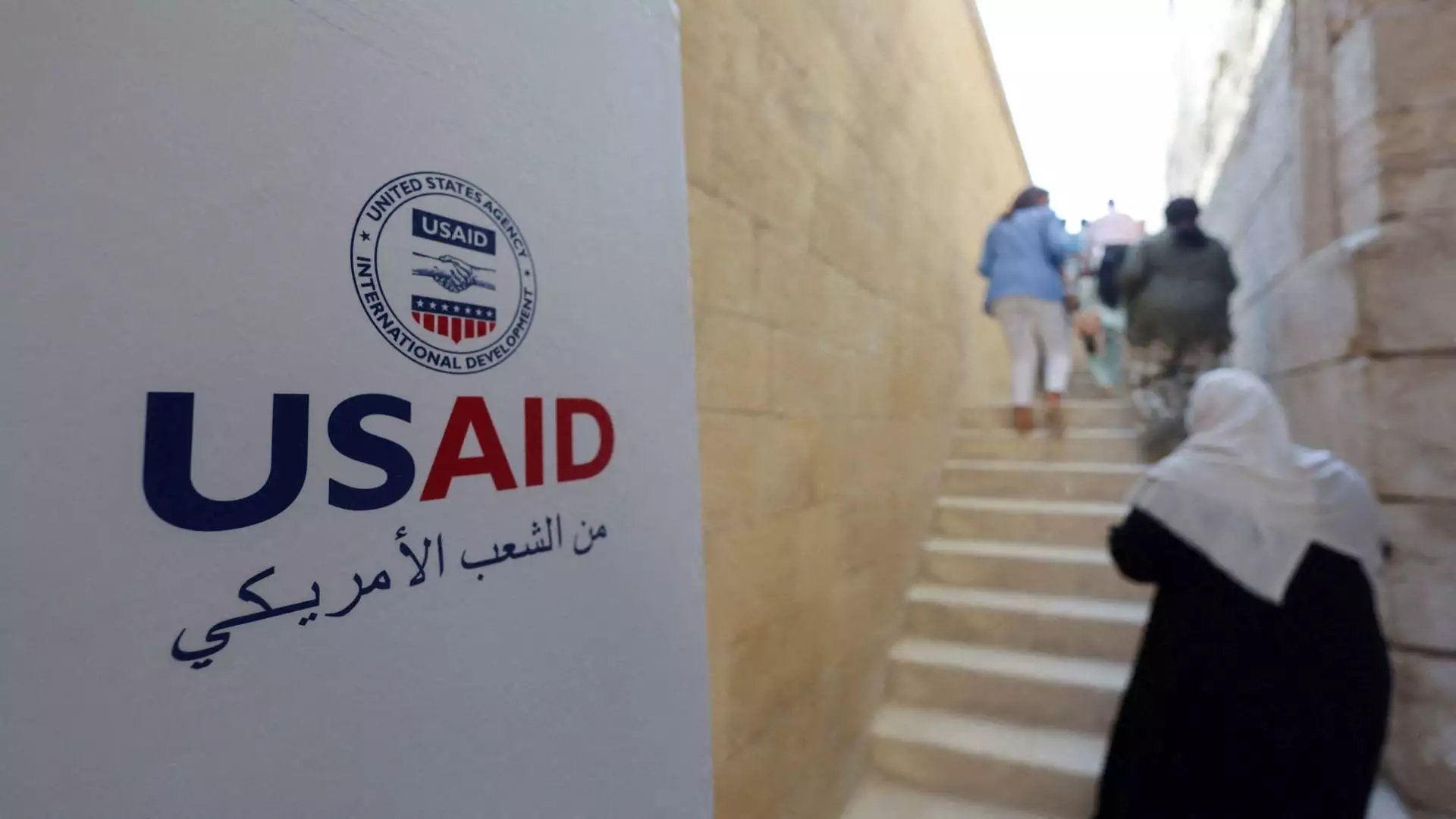The United States Agency for International Development (USAID) has become the center of controversy and upheaval as significant leadership changes and security breaches have recently come to light. The agency’s director of security, John Voorhees, along with his deputy, Brian McGill, were placed on administrative leave after a tense standoff with personnel from the Department of Government Efficiency (DOGE). This incident has not only sparked discussions about internal security protocols but also raised serious concerns regarding the agency’s operational integrity amid plans discussed by the Trump administration to potentially relocate USAID under the State Department’s oversight.
According to reports from multiple sources, the confrontation began when DOGE employees attempted to access sensitive USAID systems containing personnel files and classified security information. The urgency of the situation escalated when the DOGE team, led by Katie Miller, threatened to involve the U.S. Marshals after being denied access by Voorhees and McGill. Though Miller claimed that no classified information was accessed without appropriate clearance, the fact that the DOGE team was able to breach the secure systems remains deeply troubling.
What transpired during this interaction speaks to a significant rift between different factions of government and highlights possible dysfunction within USAID. The fallout from this unsettling encounter has sent shockwaves throughout the agency, leaving staff feeling vulnerable and anxious about their roles and responsibilities.
Adding further intrigue to the situation is the involvement of Elon Musk, the co-head of DOGE and a notable figure in the tech industry. Musk took to social media to voice scathing criticisms of USAID, labeling it a “criminal organization.” These inflammatory remarks, combined with ongoing discussions about shifting authority from USAID to the State Department, create an atmosphere of fear among the agency’s employees, many of whom feel threatened both personally and professionally.
This call for USAID to face scrutiny raises significant eyebrows about the motivations behind such drastic measures and whether they are rooted in a legitimate desire for reform or an agenda driven by politics and personal vendettas. Musk’s comments also reflect a broader trend in which technology moguls increasingly shape public policy discourse, often with little regard for the complexities involved in governance.
In the wake of this incident, significant staff cuts have been reported at USAID, with over 1,000 employees and contractors—including groups like the Bureau of Global Health—resulting in mass terminations or furloughs. This drastic reduction in personnel ability not only jeopardizes ongoing international projects crucial for global health and humanitarian efforts but also undermines the agency’s stability and capacity to function effectively.
Moreover, reports suggest that communications have been severely hampered, with many employees facing barriers to accessing internal systems that facilitate cooperation and information sharing within the agency. The morale is notably low, with one anonymous official remarking that “no one feels safe,” reflecting the atmosphere of fear and uncertainty that has enveloped USAID in recent weeks.
The proposed transfer of USAID’s authority to the State Department raises critical questions about legality and governance. Numerous legal experts and Democratic lawmakers argue that such a move would violate the statutory underpinnings established by Congress that define USAID’s autonomy. As these discussions continue behind the scenes, the potential ramifications for international assistance and diplomacy could be profound.
The confluence of security breaches, staff turmoil, and political intrigues positions USAID in an exceedingly precarious situation. As the agency grapples with external threats and internal dissent, it faces the daunting challenge of retaining its mission amid significant structural upheaval. The core functions of USAID, which involve significant financial investment and support for global humanitarian efforts, risk being overshadowed by political infighting and public scandals.
Unless these issues are addressed transparently and effectively, the agency could find itself on the path to irrelevance, unable to fulfill its critical role on the global stage. Ultimately, the fate of USAID will depend heavily on the resolution of these tensions and the willingness of all stakeholders involved to prioritize the mission over personal ambitions or political agendas.



Leave a Reply